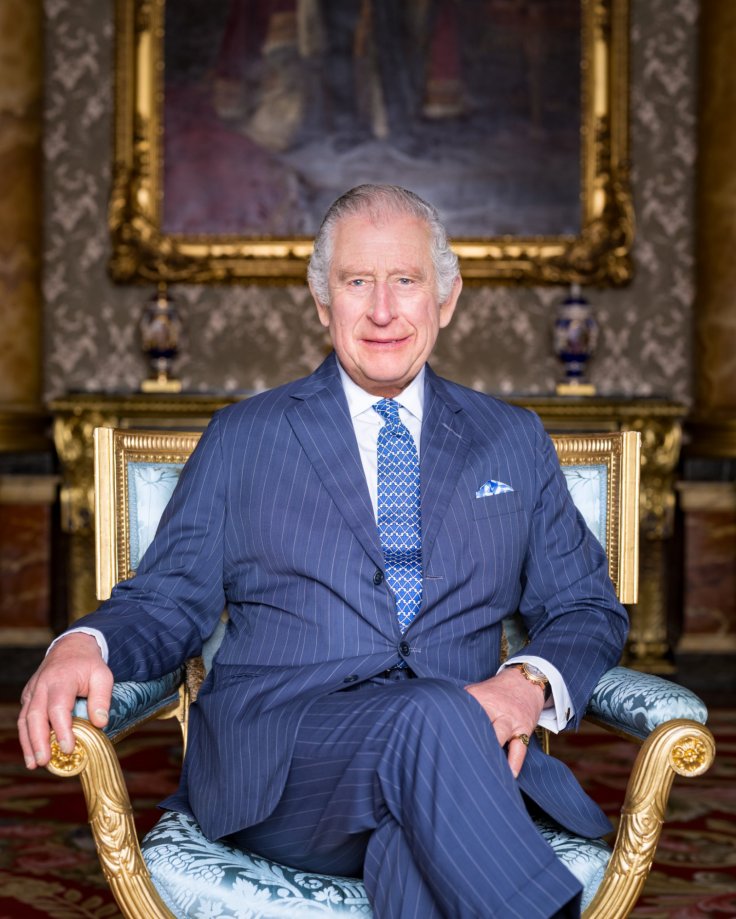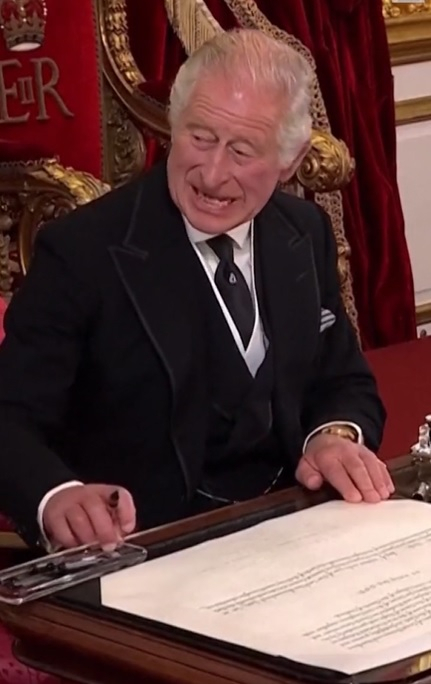Buckingham Palace confirmed on Monday that King Charles III, 75, has been diagnosed with cancer, adding to a series of health concerns for the monarch. The King was recently discharged from The London Clinic after receiving treatment for an enlarged prostate. The Palace said that the two health issues are distinct and "separate."
The King is expected to recover from his treatment at Birkhall, his private residence located on the royal family's Balmoral estate in Aberdeenshire, Scotland. Sharing the news of his cancer diagnosis, the palace said that the King "is grateful to his medical team for their swift intervention, which was made possible thanks to his recent hospital procedure".
King Charles Fighting a Tough Battle

"His Majesty has today commenced a schedule of regular treatments, during which time he has been advised by doctors to postpone public-facing duties," the palace continued.
"Throughout this period, His Majesty will continue to undertake State business and official paperwork as usual," the statement added.

The current King, Charles, who ascended the throne following the death of his mother, Queen Elizabeth II, in September 2022, has started a routine of regular treatments. As a result, he will be deferring public-facing duties, according to officials.
This recent health concern follows the 75-year-old King's admission to the London Clinic, a private hospital near Regent's Park, in January. During this hospitalization, he underwent a corrective procedure for an enlarged prostate.
Prior to the cancer diagnosis, King Charles III had faced various health challenges, including contracting Covid-19 at the onset of the pandemic.
He also had a serious accident when he was thrown from his horse while playing polo, resulting in him being knocked unconscious. Moreover, the monarch narrowly escaped an avalanche that tragically claimed the life of a close friend.
Here is a look at Charles' health history.
Chronic Pain
The recent diagnoses of an enlarged prostate and cancer add to a series of health challenges faced by the King. It was earlier revealed in Prince Harry's book "Spare" that his father endured chronic "neck and back pain," likely stemming from injuries sustained during polo matches.

In 1989, King Charles suffered a slipped disc, and the condition was exacerbated two years later by a repeat injury at the Royal Ascot. This led to a decision to restrict his participation in polo to charitable events, as medical professionals cautioned that continued competitive play would worsen his condition.
According to the Daily Mail, the trademark walk of King Charles, characterized by hands clasped behind his back, is believed to be a method to alleviate back pain.
Broken Bones
The King's health history includes numerous documented instances of cracks, cuts, and breaks. Throughout the 1990s and 2000s, he faced challenges such as dislocated shoulders and damaged cartilage.
In 2001, a horse-riding incident resulted in a dislocated shoulder and a broken acromion, a small bone on the shoulder blade's edge.
Also, keyhole laser surgery on his right knee in 1998 required the King to use a walking stick. Another injury occurred in 1990 when he suffered a nasty break to his right arm after falling from his horse.
Growth and Hernia

In 2008, King Charles underwent a minor procedure to remove a non-cancerous growth from his face, resulting in a small bandage on his face for several weeks. This was a similar experience to that of Queen Elizabeth II, who had undergone a growth removal from her face in 2003.
In March 2003, the King suffered a hernia while gardening, leading to operations and the cancellation of a skiing holiday. The decision to forego skiing may have been prudent, considering the damage to his knees from decades of skiing.
Moreover, an incident involving sawdust caused a scratched cornea for the King. While at Highgrove, a royal sawing off a branch led to significant damage to his eye, impacting his vision for several days.
Sausage Fingers

The King is also known for what has been colloquially referred to as "sausage fingers." GP Chun Tang, the Medical Director at Pall Mall Medical, has suggested that the King may be experiencing "dactylitis."
This condition is associated with inflammation and can be caused by factors such as arthritis, various bacterial infections, tuberculosis, high salt levels, allergic reactions, medicinal side effects, injury, and autoimmune diseases.
Covid-19
King Charles III had Covid-19 twice, but officials reported that he had only mild symptoms both times. The first instance occurred in March 2020, during the early stages of the pandemic in the U.K., when he isolated at home in Scotland before vaccines were available.
Despite losing his sense of taste and smell temporarily, he remained in good health.
The King contracted Covid-19 for a second time in February 2022, even though he had already received a triple vaccination.









